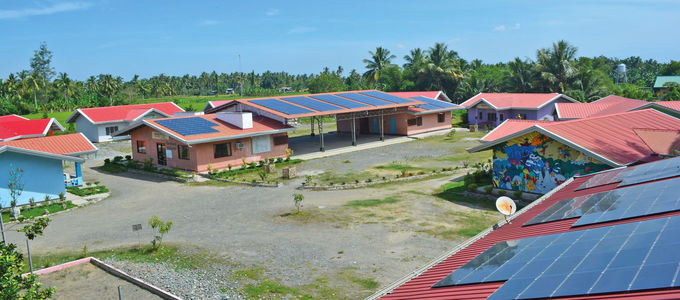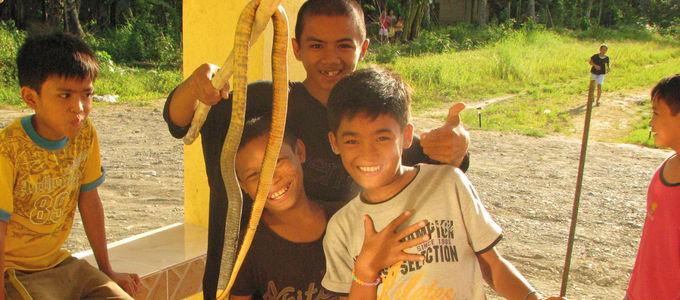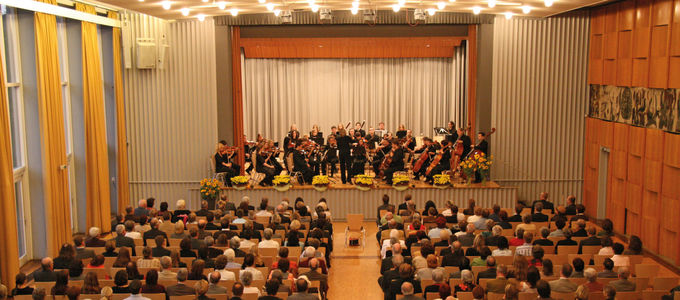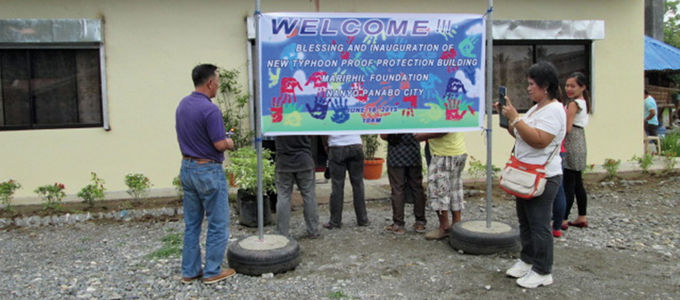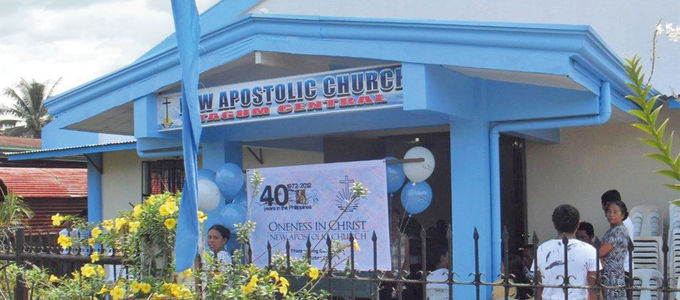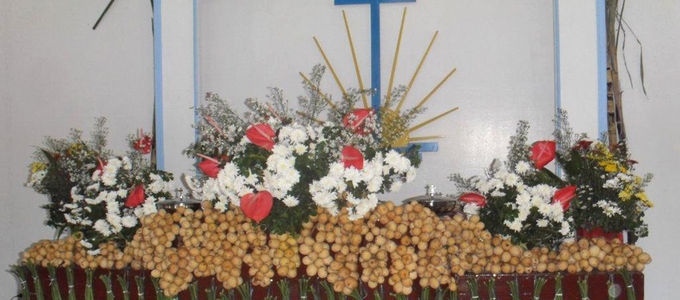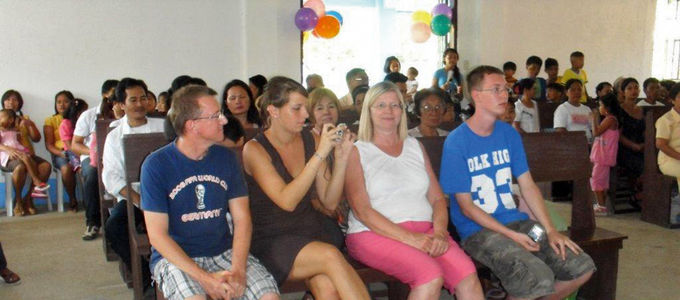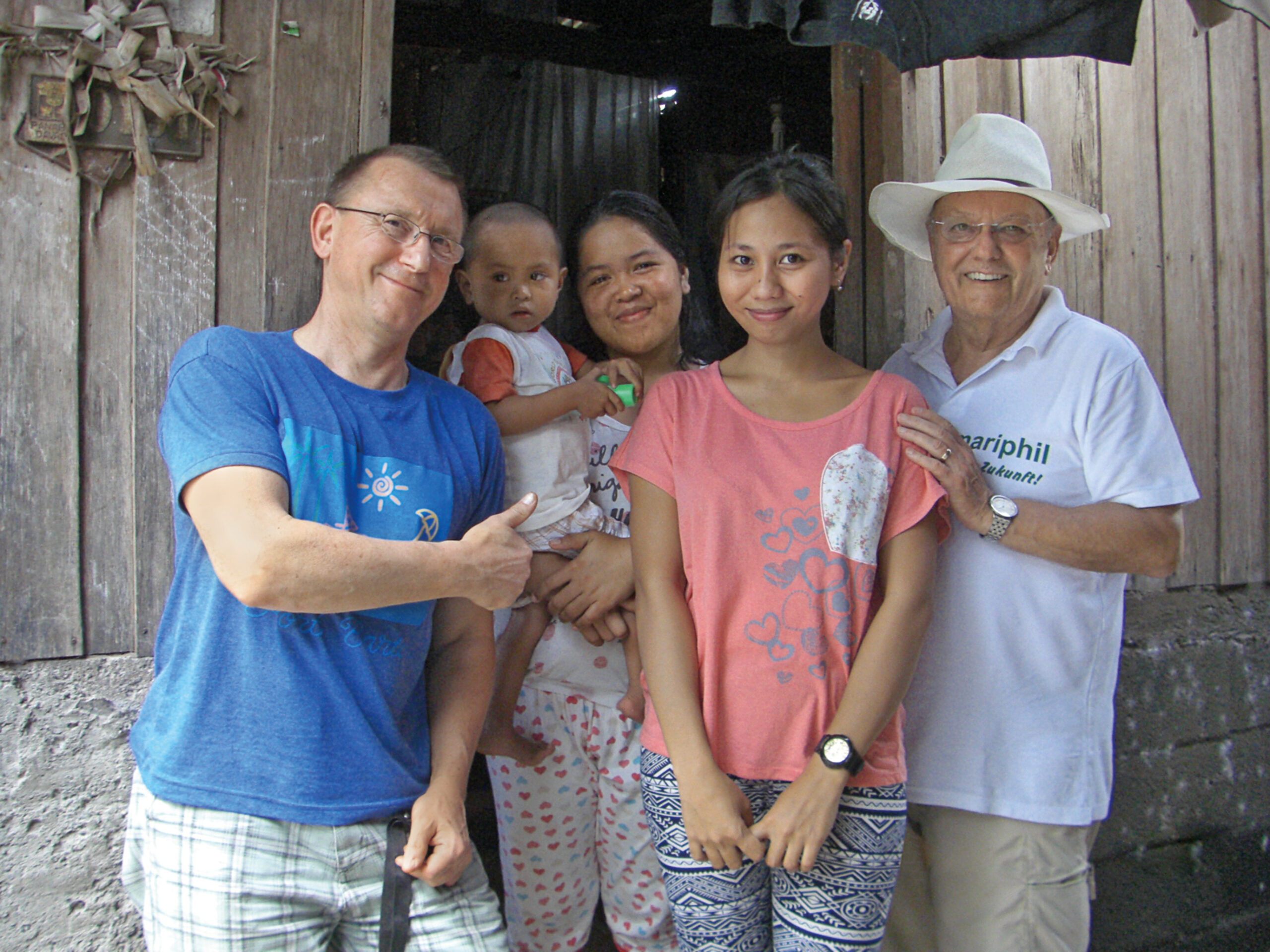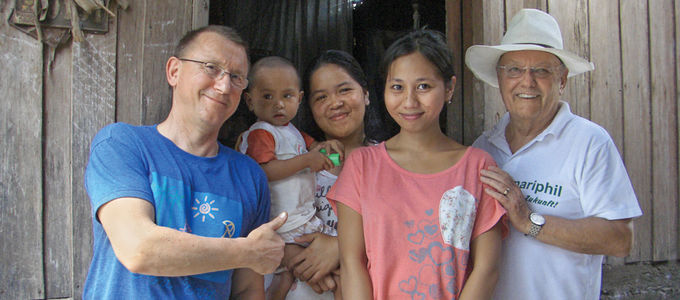
A new start shortly before retirement. In the Philippines, a Priest from Germany hears about an aid project. First, he helps to set up a foundation for it and then to build a village. His aim: giving street children a future.
By the time children in the Philippine slums start with their homework it is usually already dawn. After school they often first have to help with the chores at home and then with the work on the plantation. There is no electricity in the small bamboo huts. The sooty smoke from the petroleum lamp stings in your eyes …
Two men, one goal
Werner Schweikert, a retired Priest, from a congregation in the south of Germany was in the business of electricity. Together with a partner he had a company that installed and leased solar panel systems. Werner, himself grandfather of seven grandchildren, wanted to help poor children.
A man with such technical expertise and so extremely helpful could be immensely useful to Martin Riester. In 1998, Riester had resigned from his job and set out on a trip around the world, one that was to last seven months. He ended up staying in the Philippines. He was hooked: “I lived in one of the slums for three weeks. A ticket for a flight to my next destination would have cost me as much as it would have taken to help a family out of the slum.” He stayed and built two pigpens, bought a piece of property, and designed a tropical garden on it. “Back in Germany, in February 1999, I then started to support children with their education.” His initiative evolved into a charity project in 2001 called Mariphil.
From shantytown to village
A friend and business partner brought Werner Schweikert and Martin Riester together in 2006. They liked each other right from the start. There was a first substantial donation, and more were to follow. That same year, Werner Schweikert and his wife, Helga, sponsored an eight-year old girl. In 2007, the Mariphil Foundation was officially established. As the first chairman he looks after the finances.
What clinched it for Werner Schweikert was his first trip to Mindanao in the south of the Philippines in October 2006. “That really changed my life.” He saw the slums: “I was horrified that people had to live like that.” Even today he still experiences situations where his strength of faith is the only thing that keeps him going.
But he also saw the other side, the beaming eyes when aid arrived: “When you look into the children’s eyes, children who are happy …” And this is something that he sees in the children’s village Atung Pinuy Anan. It was built in 2011. Today the village is home to nearly 70 former street children. Here the children are helped in processing their past and shaping their future.
Unconditional help
The road to this children’s village was paved with a lot of hard work, Martin Riester says. As founder of Mariphil, he is in charge of the donors and supervises the projects. He needs to keep a cool head: “When natural disasters strike, or accidents or other dramatic things happen, you have to stay calm and stay on top of things, and make effective decisions as quickly as possible. I love nature and often jog through the forest for hours. This is where I often have my best ideas.”
“We have been working with the New Apostolic Church for years now—a trusted partner,” Martin Riester reports. The first big fund drive for the children’s village was a charity concert. When a typhoon struck about 50 kilometres from the children’s village at the end of 2012, the missionary organization of the New Apostolic Church Southern Germany jumped in. And NAC SEA Relief, the charity of the New Apostolic Church South-East Asia helped us build a typhoon shelter for the village.
“The New Apostolic Church practises charity like we do—without any ifs and buts,” Martin Riester says, who himself does not belong to any church. “This unconditional help without any distinction such as religion, race, or gender proves that there is love for people and therefore love for God.”






